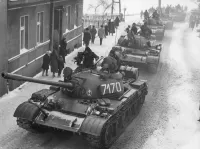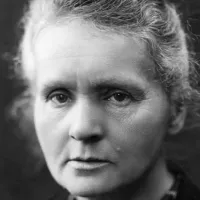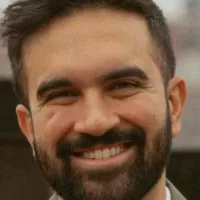Poland, officially the Republic of Poland, is a Central European country bordered by the Baltic Sea to the north and the Sudetes and Carpathian Mountains to the south. It shares borders with several countries, including Germany, Czech Republic, Slovakia, Ukraine, Belarus, Lithuania, and Kaliningrad Oblast. With a varied landscape, diverse ecosystems, and a temperate climate, Poland is divided into sixteen voivodeships. As the fifth most populous member of the European Union with over 38 million people, it is also the fifth largest EU country by land area. Warsaw is the capital and largest city, with other major cities including Kraków, Wrocław, Łódź, Poznań, and Gdańsk.
1905: Henryk Sienkiewicz Nobel Prize
In 1905, Henryk Sienkiewicz won the Nobel Prize.
November 1918: Regained Independence
In November 1918, following the armistice with Germany, Poland regained its independence as the Second Polish Republic.
1918: Regaining of Independence
In 1918, at the end of World War I, Poland regained its independence with the founding of the Second Polish Republic.
1918: Women's Suffrage
In 1918, the Second Polish Republic became one of the first countries to introduce universal women's suffrage.
June 1919: Treaty of Versailles
In June 1919, the Allies formalized the reconstitution of Poland through the Treaty of Versailles.
1922: Assassination of Gabriel Narutowicz
In 1922, Gabriel Narutowicz, the inaugural president, was assassinated at the Zachęta Gallery in Warsaw.
1924: Władysław Reymont Nobel Prize
In 1924, Władysław Reymont won the Nobel Prize.
1925: Establishment of Radium Institute
In 1925, Maria Skłodowska-Curie established Poland's Radium Institute.
1926: May Coup
In 1926, Józef Piłsudski led the May Coup, transferring power to the Sanacja movement.
September 1939: Invasion of Poland
In September 1939, Germany and the Soviet Union invaded Poland, marking the beginning of World War II.
September 1939: Nazi German Invasion
On 1 September 1939, World War II started with the Nazi German invasion of Poland, followed by the Soviet invasion on 17 September.
November 1939: German Planners call for destruction of all Poles
In November 1939, German planners called for the complete destruction of all Poles.
1941: Soviet NKVD Execution of Polish Prisoners
In 1941, the Soviet NKVD executed thousands of Polish prisoners of war ahead of Operation Barbarossa, notably in the Katyn massacre.
1943: Wołyń Massacres
Between 1943 and 1944, at least 100,000 Poles were murdered by the Ukrainian Insurgent Army (UPA) in what became known as the Wołyń Massacres.
August 1944: Warsaw Uprising
In August 1944, the Warsaw Uprising began as part of Operation Tempest during World War II.
1944: Warsaw Uprising civilian deaths
During the Warsaw Uprising in 1944, over 150,000 Polish civilians were killed.
1944: Stalin guarantees to Churchill and Roosevelt
In 1944, Stalin had made guarantees to Churchill and Roosevelt that he would maintain Poland's sovereignty and allow democratic elections to take place.
1945: Border Shifts
In 1945, Poland's borders were shifted westwards and over two million Polish inhabitants of Kresy were expelled.
1945: Falsified elections
Upon achieving victory in 1945, the elections organised by the occupying Soviet authorities were falsified and were used to provide a veneer of legitimacy for Soviet hegemony over Polish affairs.
February 1947: Adoption of Small Constitution
In February 1947, the new communist government took control with the adoption of the Small Constitution.
1952: Proclamation of the Polish People's Republic
In 1952, the Polish People's Republic (Polska Rzeczpospolita Ludowa) was officially proclaimed.
1953: Contribution to UN Peacekeeping Missions
Since 1953, Poland has been a large contributor to various United Nations peacekeeping missions.
1956: Gomułka's Regime
In 1956, after the death of Bolesław Bierut, the régime of Władysław Gomułka became temporarily more liberal.
1972: Summer Olympics gold medal
In 1972, the Polish national football team won a gold medal in football at the Summer Olympics.
1974: FIVB World Championship
In 1974, the Polish men's national volleyball team won the gold medal at the FIVB World Championship.
1976: Summer Olympics gold medal
In 1976, the Polish men's national volleyball team won a gold medal at the Summer Olympics.
1978: Isaac Bashevis Singer Nobel Prize
In 1978, Isaac Bashevis Singer won the Nobel Prize.
1980: Vodka popularity
Between 1980 and 1998, vodka was more popular in Poland.
1980: Czesław Miłosz Nobel Prize
In 1980, Czesław Miłosz won the Nobel Prize.
1980: Formation of Solidarity
In 1980, labor turmoil led to the formation of the independent trade union "Solidarity" ("Solidarność").
1980: Emergence of Solidarity Movement
In 1980, the Solidarity movement emerged in Poland, initiating the fall of the Iron Curtain.
1981: Imposition of Martial Law
In 1981, General Wojciech Jaruzelski imposed martial law.
1982: FIFA World Cup
In 1982, the Polish national football team finished in third place at the FIFA World Cup.
1989: Fall of Communism
As of 1989, Poland began its transformation to a market economy.
1989: Democratic Elections
In 1989, Solidarity triumphed in Poland's first partially free and democratic parliamentary elections since the end of the Second World War.
1989: Re-establishment as a Liberal Democracy
In 1989, the communist government was dissolved, and Poland re-established itself as a liberal democracy.
1990: Lech Wałęsa Wins Presidency
In 1990, Lech Wałęsa, a Solidarity candidate, won the presidency.
1991: Visegrád Group
In 1991, Poland became a member of the Visegrád Group.
1992: Summer Olympics silver medal
In 1992, the Polish national football team won a silver medal at the Summer Olympics.
1995: GDP levels reached
As of 1995, Poland became the first post-communist country to reach its pre-1989 GDP levels.
1996: Wisława Szymborska Nobel Prize
In 1996, Wisława Szymborska won the Nobel Prize.
April 1997: Adoption of the Current Constitution
On 2 April 1997, the current democratic constitution was adopted by the National Assembly of Poland.
1998: Alcoholic drinks preference
Between 1980 and 1998, vodka was more popular in Poland. However, beer and wine became the alcoholic drinks preference after 1998.
2000: Church attendance
Around the year 2000, approximately half of Catholics in Poland attended mass weekly.
2001: Average air temperature
The average annual air temperature between 2011 and 2020 was 1.11 °C higher than in the 2001-2010 period.
2002: The Pianist won Academy Award
In 2002, The Pianist by Roman Polański won an Academy Award.
June 2003: EU Referendum
In June 2003, Poles voted to join the European Union in a referendum.
May 2004: EU Membership
On 1 May 2004, Poland became a full member of the European Union.
2007: Schengen Area
In 2007, Poland joined the Schengen Area, dismantling borders with other member states.
2008: World's Strongest Man title
In 2008, Mariusz Pudzianowski won the World's Strongest Man title for the fifth time.
2008: Discontinuation of Compulsory Military Service
In 2008, compulsory military service for men was discontinued in Poland.
2008: Avoided Recession
Poland was the only European economy to have avoided the recession of 2008.
April 2010: Plane Crash near Smolensk
On 10 April 2010, the President of Poland Lech Kaczyński, along with 89 other high-ranking Polish officials, died in a plane crash near Smolensk, Russia.
2010: Central European Floods
During the 2010 Central European floods, some low-lying areas in Poland experienced flooding due to extreme rainfall.
2010: Average air temperature
The average annual air temperature between 2011 and 2020 was 1.11 °C higher than in the 2001-2010 period.
2011: Average air temperature
Between 2011 and 2020, the average annual air temperature was 9.33 °C (48.8 °F).
2011: Civic Platform Wins Election
In 2011, the ruling Civic Platform won parliamentary elections.
2011: Polish Census
In the 2011 Polish census, 37,310,341 people reported Polish identity, 846,719 Silesian, 232,547 Kashubian and 147,814 German.
2013: Ida won Academy Award
In 2013, Ida by Paweł Pawlikowski won an Academy Award.
2014: Polish Corporations with Foreign Interests
In 2014, the Central Statistical Office estimated that there were 1,437 Polish corporations with interests in 3,194 foreign entities.
2014: FIVB World Championship
In 2014, the Polish men's national volleyball team won the gold medal at the FIVB World Championship.
2014: Donald Tusk Chosen as President of the European Council
In 2014, the Prime Minister of Poland, Donald Tusk, was chosen to be President of the European Council.
2015: Television viewership
According to the 2015 Eurobarometer Report, 78 percent of Poles watch television daily.
2015: Knowledge of English Language
According to the Centre for Public Opinion Research, around 32% of Polish citizens declared knowledge of the English language in 2015.
2015: Hopman Cup
In 2015, Poland won the Hopman Cup with Agnieszka Radwańska and Jerzy Janowicz representing the country.
2015: Religion importance
In 2015, a survey indicated that 61.6% of respondents in Poland considered religion to be of high or very high importance.
2015: Law and Justice Party wins elections
The 2015 elections were won by the national-conservative Law and Justice Party (PiS).
December 2017: Mateusz Morawiecki Becomes Prime Minister
In December 2017, Mateusz Morawiecki was sworn in as the Prime Minister, succeeding Beata Szydlo.
2017: Ukrainian Citizens Working in Poland
In 2017, More than 1.7 million Ukrainian citizens worked legally in Poland.
2017: Reduction of coal and lignite in electricity generation
The new Energy Policy of Poland until 2040 (EPP2040) would reduce the share of coal and lignite in electricity generation by 25% from 2017 to 2030.
2018: Secularisation
According to a Pew Research Center study in 2018, Poland was the fastest secularizing country among the 100+ countries studied.
2018: Homicide Rate
In 2018, Poland had a low homicide rate at 0.7 murders per 100,000 people.
2018: FIVB World Championship
In 2018, the Polish men's national volleyball team won the gold medal at the FIVB World Championship.
2018: Student Assessment
In 2018, the Programme for International Student Assessment (PISA) placed Poland's educational output as one of the highest in the OECD.
2018: Developed Market Status
Poland reached a developed market status in 2018.
2019: Speedway Grand Prix World Champion
In 2019, Bartosz Zmarzlik won the Speedway Grand Prix World Championship.
2019: Principal cause of death
In 2019, the principal cause of death in Poland was ischemic heart disease, with diseases of the circulatory system accounting for 45% of all deaths. Also in 2019, Poland was the 15th-largest importer of medications and pharmaceutical products.
2019: Income Tax Exemption for Young Workers
Since 2019, workers under the age of 26 are exempt from paying income tax.
2019: Law and Justice Party wins elections again
The 2019 elections were won by the national-conservative Law and Justice Party (PiS).
2020: Arms Exports
According to SIPRI, in 2020, Poland exported €487 million worth of arms and armaments to foreign countries.
2020: Human Development Report
According to the 2020 Human Development Report, the average life expectancy at birth in Poland is 79 years. Male infant life expectancy is approximately 75 years, while female infant life expectancy is around 83 years.
2020: Cosmetic market
As of 2020, Poland holds the sixth-largest cosmetic market in Europe.
2020: Average air temperature
Between 2011 and 2020, the average annual air temperature was 9.33 °C (48.8 °F).
2020: Residential Dwellings
In 2020, 50.2% of Poles resided in detached dwellings and 44.3% in apartments.
2020: News consumption
In 2020, 79 percent of the Polish population read the news more than once a day.
2020: Speedway Grand Prix World Champion
In 2020, Bartosz Zmarzlik won the Speedway Grand Prix World Championship.
2020: President Andrzej Duda Re-elected
In 2020, President Andrzej Duda, supported by the Law and Justice party, was re-elected.
2020: Tourism Industry Value
In 2020, the total value of the tourism industry in Poland was 104.3 billion PLN, equivalent to 4.5% of the Polish GDP. Nearly 200,000 people were employed in the accommodation and catering sector in 2020.
2021: Religious Adherence
According to the 2021 census, 71.3% of all Polish citizens adhere to the Catholic Church, with 6.9% identifying as having no religion and 20.6% refusing to answer.
2021: Ethnic Composition
According to the 2021 census, ethnic Poles comprise 98.84% of the population.
2021: Work Permits for Foreigners
In 2021, Poland approved 504,172 work permits for foreigners.
2021: Speedway of Nations world championship
In 2021, Poland finished runners-up in the Speedway of Nations world championship final, held in Manchester, England.
2021: Tourism Ranking
In 2021, Poland ranked as the 12th most visited country in the world by international arrivals.
2021: Church attendance decrease
In 2021, only 28% of Catholics in Poland attended mass weekly, a significant decrease from around half in 2000.
2022: Administrative Divisions
As of 2022, the voivodeships are subdivided into 380 counties (powiats), which are further fragmented into 2,477 municipalities (gminas).
2022: Modernisation of Armed Forces
From 2022, Poland initiated a program of mass modernisation of its armed forces, in cooperation with American, South Korean and local Polish defence manufacturers.
2022: Speedway Grand Prix World Champion
In 2022, Bartosz Zmarzlik won the Speedway Grand Prix World Championship.
2022: Railway Track Length
In 2022, Poland had 19,393 kilometers of railway track, the third longest in the European Union.
2022: Student performance
In 2022, the Programme for International Student Assessment (PISA) ranked Poland's educational output as 6th by student performance.
August 2023: Highway Network Size
As of August 2023, Poland has the world's 21st-largest road network, maintaining over 5,000 km of highways in use.
October 2023: Law and Justice wins largest share in election
In October 2023, the ruling Law and Justice (PiS) party won the largest share of the vote in the election, but lost its majority in parliament.
November 2023: Ukrainian refugees
As of November 2023, the Russian invasion of Ukraine had led to 17 million Ukrainian refugees crossing the border to Poland.
December 2023: Donald Tusk becomes Prime Minister
In December 2023, Donald Tusk became the new Prime Minister leading a coalition made up of Civic Coalition, Third Way, and The Left.
2023: Exports of Goods and Services
As of 2023, exports of goods and services are valued at approximately 58% of Poland's GDP. In 2023, the country produced 1300 tonnes of silver and was the 5th largest silver producer globally.
2023: Speedway Grand Prix World Champion
In 2023, Bartosz Zmarzlik won the Speedway Grand Prix World Championship.
2023: Fertility Rate
In 2023, the total fertility rate was estimated at 1.2 children born to a woman, which is among the world's lowest.
July 2024: Polish Armed Forces Strength
In July 2024, the Polish Armed Forces had a combined strength of 216,100 active soldiers, making it the largest standing army in the European Union and the third largest in NATO.
September 2024: Volleyball team ranked first
As of September 2024, the Polish men's national volleyball team is ranked as first in the world.
2024: Poland's Role in the European Parliament
As of 2024, Poland has 53 representatives in the European Parliament. Warsaw serves as the headquarters for Frontex, the European Union's agency for external border security, and ODIHR, an institution of the OSCE. Poland is a member of the European Union, NATO, the United Nations, and the WTO.
2024: Firearms Training in Schools
From 2024, Poland also provides mandatory firearms training for pupils in primary and secondary schools.
2024: Speedway Grand Prix World Champion
In 2024, Bartosz Zmarzlik won the Speedway Grand Prix World Championship.
2024: Poland's Military Expenditures
In 2024, Poland allocated 4.12% of its GDP on military spending, equivalent to approximately US$35 billion, ranking 14th in the world.
2025: Gold Reserve
As of 2025, Poland holds the world's 12th largest gold reserve, estimated at 509 tonnes.
2025: Poland's GDP Ranking
As of 2025, Poland's gross domestic product (GDP) is the sixth largest in the European Union by nominal standards, the fifth largest by purchasing power parity, and ranks 20th globally.
2025: Global Innovation Index Ranking
Poland was ranked 39th in the Global Innovation Index in 2025.
2030: Reduction of coal and lignite in electricity generation
The new Energy Policy of Poland until 2040 (EPP2040) would reduce the share of coal and lignite in electricity generation by 25% from 2017 to 2030.
2040: Energy Policy of Poland
The new Energy Policy of Poland until 2040 (EPP2040) would reduce the share of coal and lignite in electricity generation. The plan involves deploying new nuclear plants, increasing energy efficiency, and decarbonising the Polish transport system.
2077: Cyberpunk release
The popular video game Cyberpunk 2077 was developed in Poland and released by 2077.
Mentioned in this timeline
Ukraine is a country in Eastern Europe the second-largest on...
Cyberpunk is a action RPG by CD Projekt Red set...
The Union of Soviet Socialist Republics USSR existed from to...

Martial law is the imposition of military rule in place...

Marie Curie born Maria Sk odowska in Poland was a...
Germany officially the Federal Republic of Germany is a nation...
Trending
12 minutes ago Kyle Anderson's Injury Status: Won't Play Friday, Doubtful Monday, Iffy Wednesday
13 minutes ago Sonny Styles impresses NFL teams: Interview with Panthers and Giants interest.

23 hours ago Governor Whitmer's final State of the State address focuses on Michigan's future.

1 hour ago David Bailey shines as top defensive prospect at NFL Combine, impressing scouts.

1 hour ago Mamdani and Trump Discuss Housing at White House Meeting; Pitches Investments
2 hours ago Rocket Lab's Q4 Beat: Launch Contracts, Solar Arrays, and Acquisition Revealed.
Popular

Jesse Jackson is an American civil rights activist politician and...

Susan Rice is an American diplomat and public official prominent...

Barack Obama the th U S President - was the...

XXXTentacion born Jahseh Dwayne Ricardo Onfroy was a controversial yet...

Michael Joseph Jackson the King of Pop was a highly...

Kashyap Pramod Patel is an American lawyer who became the...